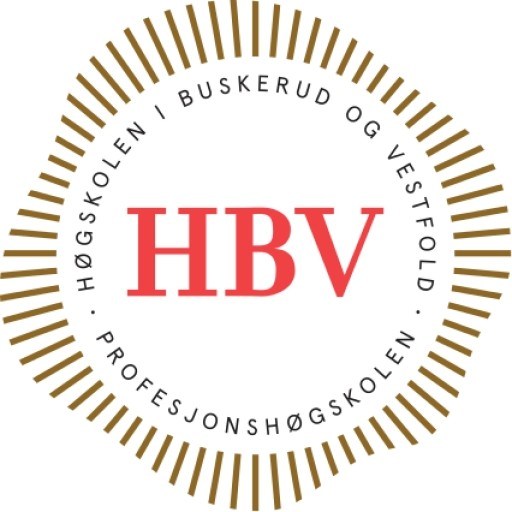Photos of university / #ntnu
Maritime Engineering at the Norwegian University of Science and Technology (NTNU) is a comprehensive and innovative engineering program designed to prepare students for a dynamic and vital sector of the global economy. This multidisciplinary degree combines fundamental engineering principles with specialized knowledge related to maritime technology, ship design, offshore structures, and marine systems. The program offers a robust curriculum that covers topics such as naval architecture, marine engineering, fluid dynamics, materials science, and environmental considerations in maritime operations. Students will gain hands-on experience through laboratory work, simulation exercises, and industry collaborations, ensuring they are well-equipped to address real-world challenges faced by the maritime sector.
The program emphasizes sustainability, safety, and efficiency in maritime transport and offshore activities, reflecting the industry’s evolving demands and technological advancements. Students have access to state-of-the-art facilities, including specialized laboratories and simulation centers, facilitating practical learning and research opportunities. The curriculum is designed to foster innovation and entrepreneurship, encouraging students to develop creative solutions for maritime problems and sustainable development.
Graduates of Maritime Engineering at NTNU are highly sought after in shipping companies, offshore industry, shipbuilding, research institutions, and consulting firms worldwide. They possess a solid foundation in engineering sciences combined with specialized maritime knowledge, enabling them to contribute effectively to the design, operation, and management of complex marine systems. The program also offers international mobility opportunities, allowing students to participate in exchange programs and internships abroad, further broadening their professional perspectives.
With a combination of rigorous academics, practical training, and industry engagement, the Maritime Engineering program at NTNU prepares students for a successful career in a global industry that is vital to international trade, energy production, and environmental stewardship. Graduates leave with not only technical expertise but also a global mindset and problem-solving skills essential for advancing maritime technology and sustainable maritime development worldwide.
The Master's degree program in Maritime Engineering at the Norwegian University of Science and Technology (NTNU) is designed to provide students with comprehensive knowledge and practical skills essential for the maritime industry. The program combines advanced engineering principles with specialized training in ship design, offshore structures, and maritime systems, preparing graduates to address complex challenges within the maritime sector. Throughout the program, students will explore topics such as naval architecture, marine hydrodynamics, ocean engineering, and sustainable maritime operations. Emphasis is placed on innovative design methods, safety regulations, and environmental considerations, ensuring that graduates are well-equipped to develop efficient, safe, and eco-friendly maritime solutions. The curriculum includes coursework, project work, and internships that foster critical thinking, technical proficiency, and teamwork. Students have access to state-of-the-art laboratories and simulation facilities, providing hands-on experience in ship modeling, structural analysis, and maritime logistics. The program also encourages international cooperation and research, enabling students to engage with global maritime research communities. Upon graduation, students will be prepared for careers in shipbuilding, offshore engineering, maritime consultancy, and research institutions, or to pursue further doctoral studies. The Master's in Maritime Engineering at NTNU aims to shape innovative professionals capable of leading the future of maritime technologies and sustainable development in the maritime industry.
The financing of the Maritime Engineering program at the Norwegian University of Science and Technology is primarily supported through a combination of tuition fees, scholarships, government grants, and financial aid options. For international students, tuition fees are set according to the regulations for non-EU/EEA students, which are publicly available and subject to annual adjustments. Norwegian students and EU/EEA students may benefit from reduced or waived tuition fees due to national and regional policies aimed at promoting higher education accessibility.
The university provides several scholarship opportunities specifically for students enrolled in engineering disciplines, including the Maritime Engineering program. These scholarships are competitive and often awarded based on academic merit, motivation, and financial need. Certain scholarships are funded by governmental and industry partners to foster excellence in maritime engineering and related fields. Students are encouraged to apply early and meet specific eligibility criteria specified by each scholarship program.
In addition to scholarships, students have access to student loans and grants managed by the Norwegian State Educational Loan Fund (Lånekassen). These financial supports are available for Norwegian and eligible international students, offering a practical means to finance tuition and living expenses during the study period. Students are advised to consult the Lånekassen official website for detailed information on eligibility, application procedures, and repayment conditions.
The university also emphasizes work-study opportunities, internships, and part-time employment to help students finance their studies and gain practical experience. International students in Norway are permitted to work a limited number of hours per week during the semester, which can supplement their financial resources. Moreover, the university occasionally offers employer-sponsored training programs and collaborations with maritime industries, providing students with potential paid training placements.
Overall, the financial structure of the Maritime Engineering program at NTNU is designed to minimize barriers to education through a comprehensive mix of institutional, governmental, and private funding options, ensuring that motivated students can pursue their studies without insurmountable financial difficulties.
Maritime Engineering at the Norwegian University of Science and Technology (NTNU) is a comprehensive and challenging programme designed to prepare students for a careers in the maritime industry, which is a vital sector in Norway and globally. The programme focuses on the design, construction, operation, and maintenance of ships and maritime structures, including offshore platforms, ships, and other sea-based equipment. Students gain a solid foundation in marine engineering principles, marine technology, fluid dynamics, materials science, and system design, equipping them with the technical skills needed to innovate and improve maritime transport and offshore installations.
Students at NTNU benefit from a curriculum that integrates theoretical knowledge with practical application, often involving projects, laboratory work, and internships with leading maritime companies. The programme emphasizes sustainability, safety, and environmental considerations, aligning with global efforts to reduce emissions and improve the efficiency of maritime operations. Courses may cover topics such as ship design, propulsion systems, offshore engineering, control systems, and maritime logistics.
The university’s strong ties to industry ensure that students receive relevant and up-to-date education, preparing them for employment in shipping companies, shipbuilding yards, offshore service providers, and maritime consultancy firms. Graduates of the programme are equipped to work in multidisciplinary teams, contribute to technological development, and uphold safety standards within the maritime sector.
The programme is usually offered as a Master’s degree (MSc), following a Bachelor's degree, and often involves collaboration with Norwegian and international maritime industries. Students may also have opportunities to participate in research projects and specialized modules that focus on emerging technologies such as maritime autonomous systems, digitalization, and eco-friendly ship design. The duration of the degree is typically two years, during which students develop both academic knowledge and practical skills, positioning themselves for a range of career paths within the maritime industry.
Facilities at NTNU, including simulation labs, workshops, and maritime research centers, support student learning and innovation. The university also promotes internationalization through exchange programmes and collaboration with universities worldwide, giving students a broader perspective on global maritime challenges and solutions. Graduates from the Maritime Engineering programme often go on to hold key positions in their field, contributing to maritime safety, efficiency, and sustainability worldwide.
Overall, the programme aims to cultivate highly skilled engineers who are capable of meeting the demands of a dynamic and environmentally conscious industry, supporting Norway’s reputation as a maritime nation and contributing to sustainable development in marine technology.






